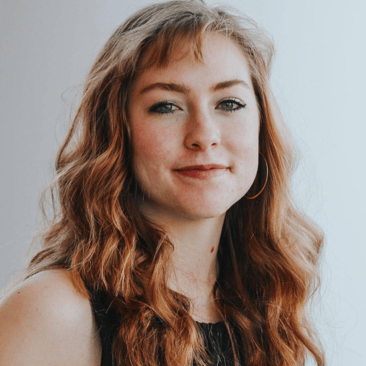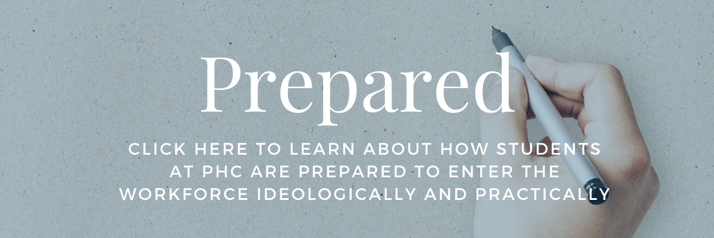
It was January of my freshman year at Patrick Henry College, and I was sitting in a crowded café (pre-COVID, if you can believe it), sipping coffee and twitching with nerves as I interviewed for a blogging internship opportunity with a PHC alumna. As we talked, I thought back to the tips I’d learned online about what to do during a job interview: maintain eye contact and a relaxed posture, and be confident. I thought I was doing great—until she asked me what my favorite thing about her blog was. My mind suddenly went blank as a whiteboard. My favorite thing? I wondered desperately as I paused, pretending to ponder while wildly searching my brain for the right answer.
She stared at me.
“I guess I liked the blog posts about food recipes,” I said finally.
Immediately I knew it was the wrong answer.
It is easy to become flustered during job interviews. The interviewer might ask questions you are not prepared for, or you are so anxious about getting the job that you don’t realize that you are making a bad impression. In my case, I simply hadn’t done enough research for the job to respond with a thorough answer to a simple question.

Pictured above: Emma Perley
Thoroughly researching the job before walking into the interview gives the interviewer the sense that you know what you are applying for, what the job requires, and what makes it a good fit for you. Knowing why you are interested in the job—other than just for the sake of a paycheck—goes a long way in impressing the interviewer with your enthusiasm and confidence in your own abilities to meet and exceed expectations.
However, prepping for a job interview involves more than just research; it is important to know what the interviewer is specifically looking for in a candidate. Job interviews are often as much about communicating with the interviewer as they are about representing yourself as an appealing fit for the role. Resume Now describes how employers don’t always look for memorized answers or loads of qualifications on a resume. Attractive personality traits such as confidence, adaptability, and resourcefulness, as well as conversational questions and authenticity are strong characteristics that make any interviewee look like a promising hire.
Having your own questions for the interviewer is also a great way to show your seriousness about the job. Try asking questions such as: what are the day-to-day responsibilities in this job? How would you describe the characteristics of someone who succeeds in this role? If I were in this position, what challenges should I prepare for? Preemptive questions show the interviewer that you are already preparing for the job, even before you’ve been offered one. Also, take opportunities to display how you’ve created solutions to problems in your previous jobs, or acted independently to produce beneficial results for your employers. Using your answers during conversation to explain your qualifications paints a bigger picture for the interviewer to clearly see your accomplishments.
Finally, first impressions make a big difference. Arrive early to the meeting, maintain a neat and tidy appearance, and carry a notebook and a pen so you can jot down anything that might give you a chance to ask a question or request a clarification. Remaining professional, respectful, relaxed, and having a smile on your face will build your own confidence as well as the interviewer’s. Remember, the job might require qualifications, but who you are as a person is often the deciding factor in job interviews.
------------
Everything about the PHC experience is aimed at equipping students to becoming stronger Christians and better professionals. To learn more about how PHC prepares its students for the real world, click below!




